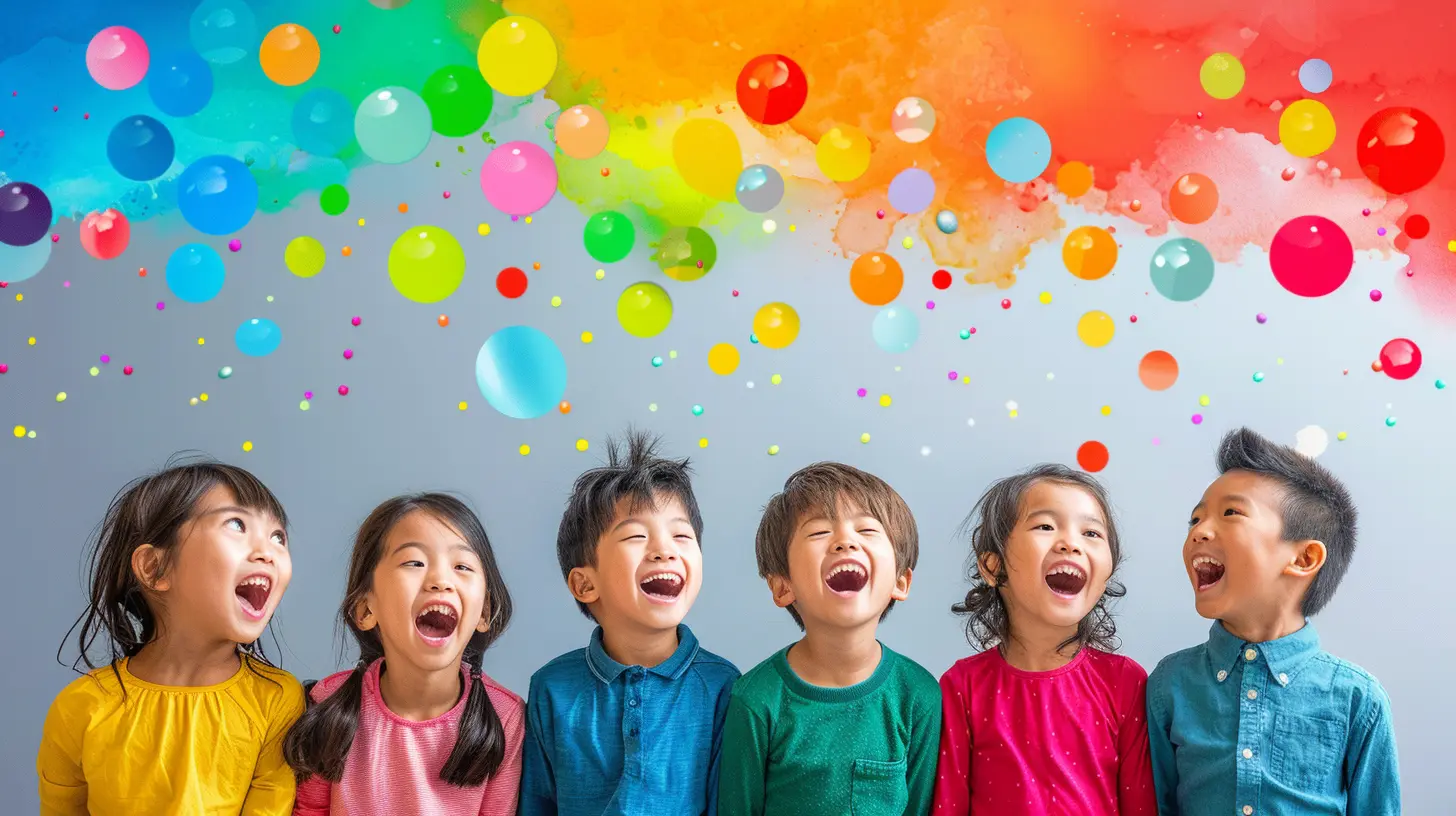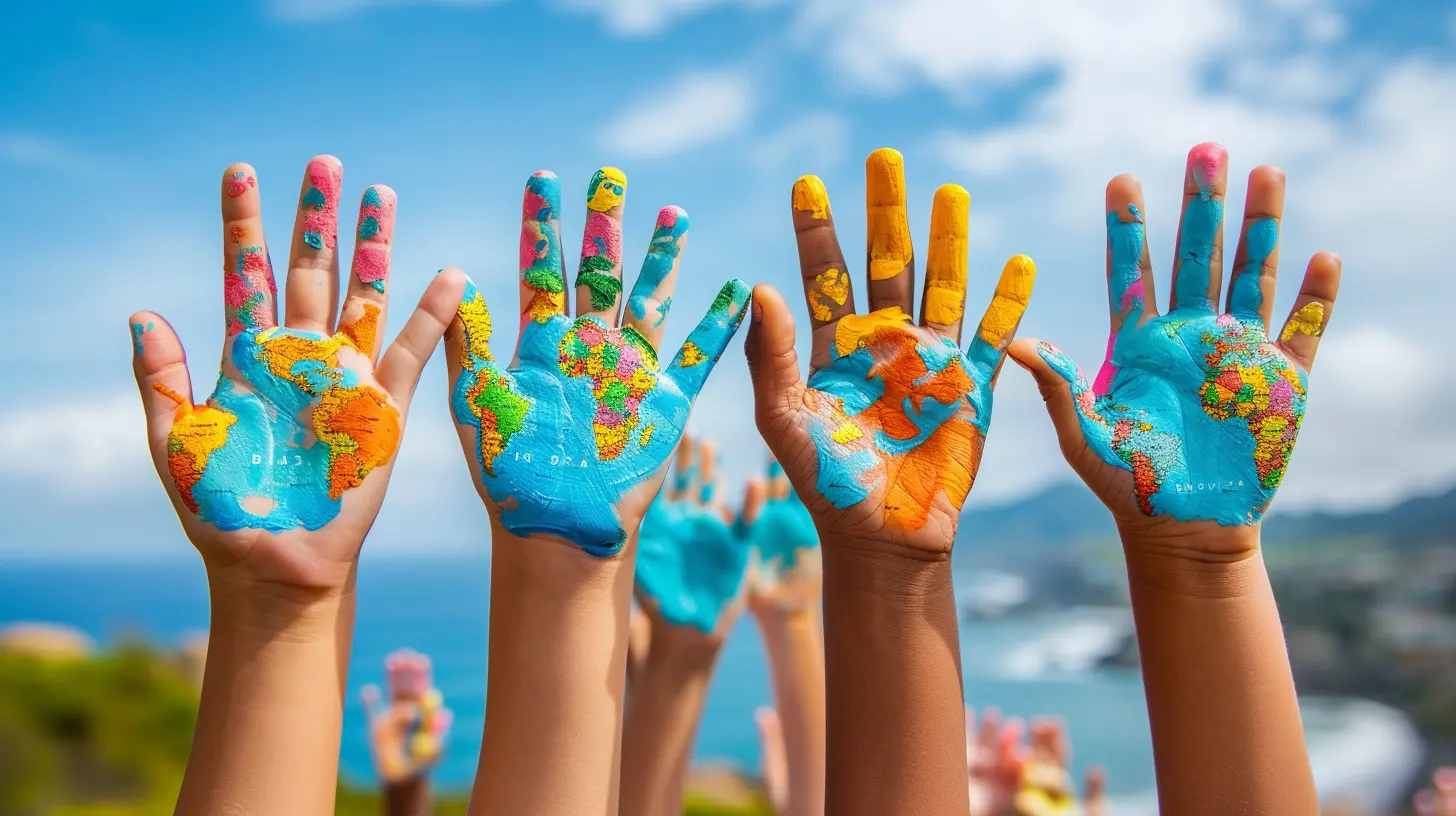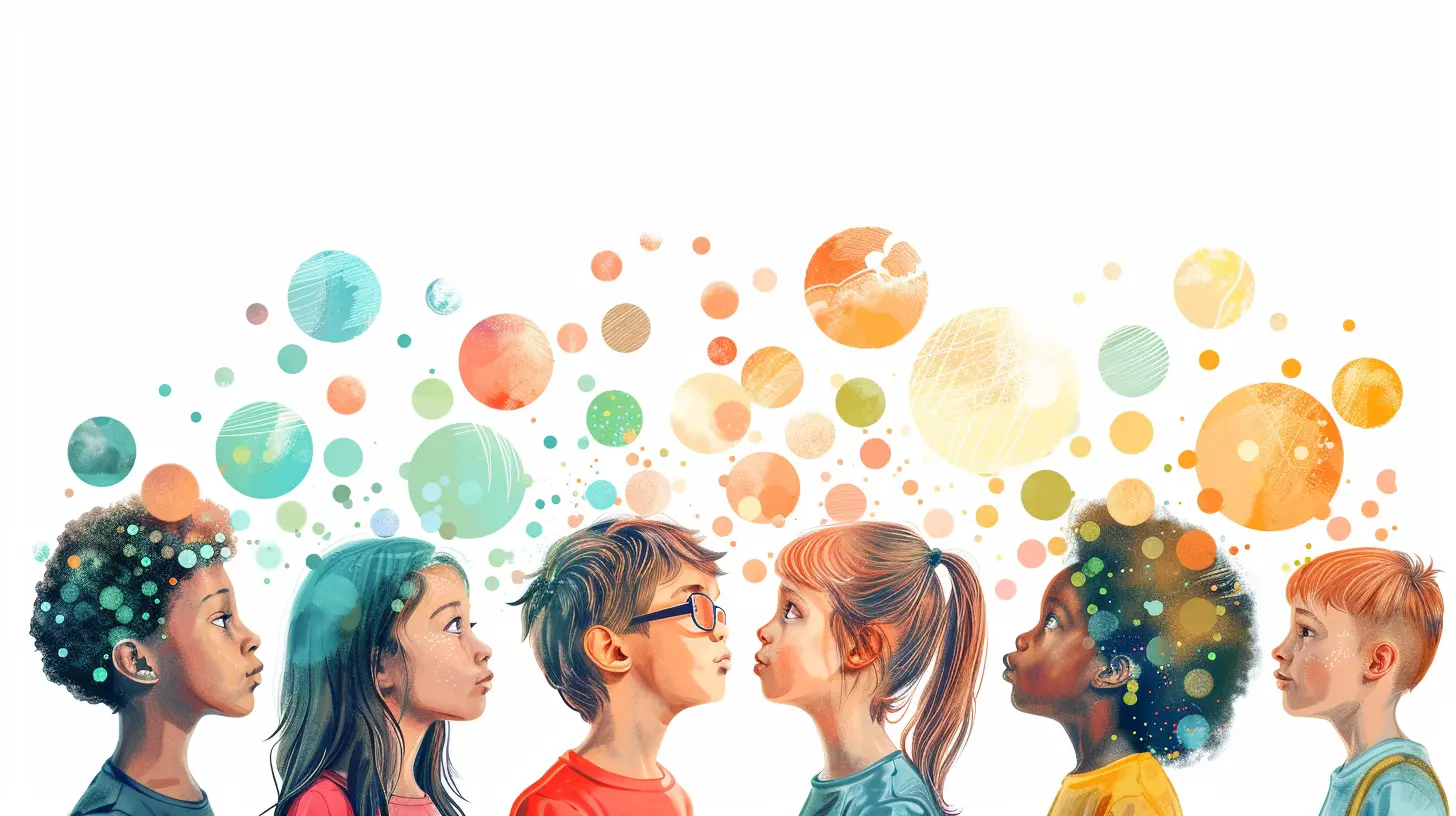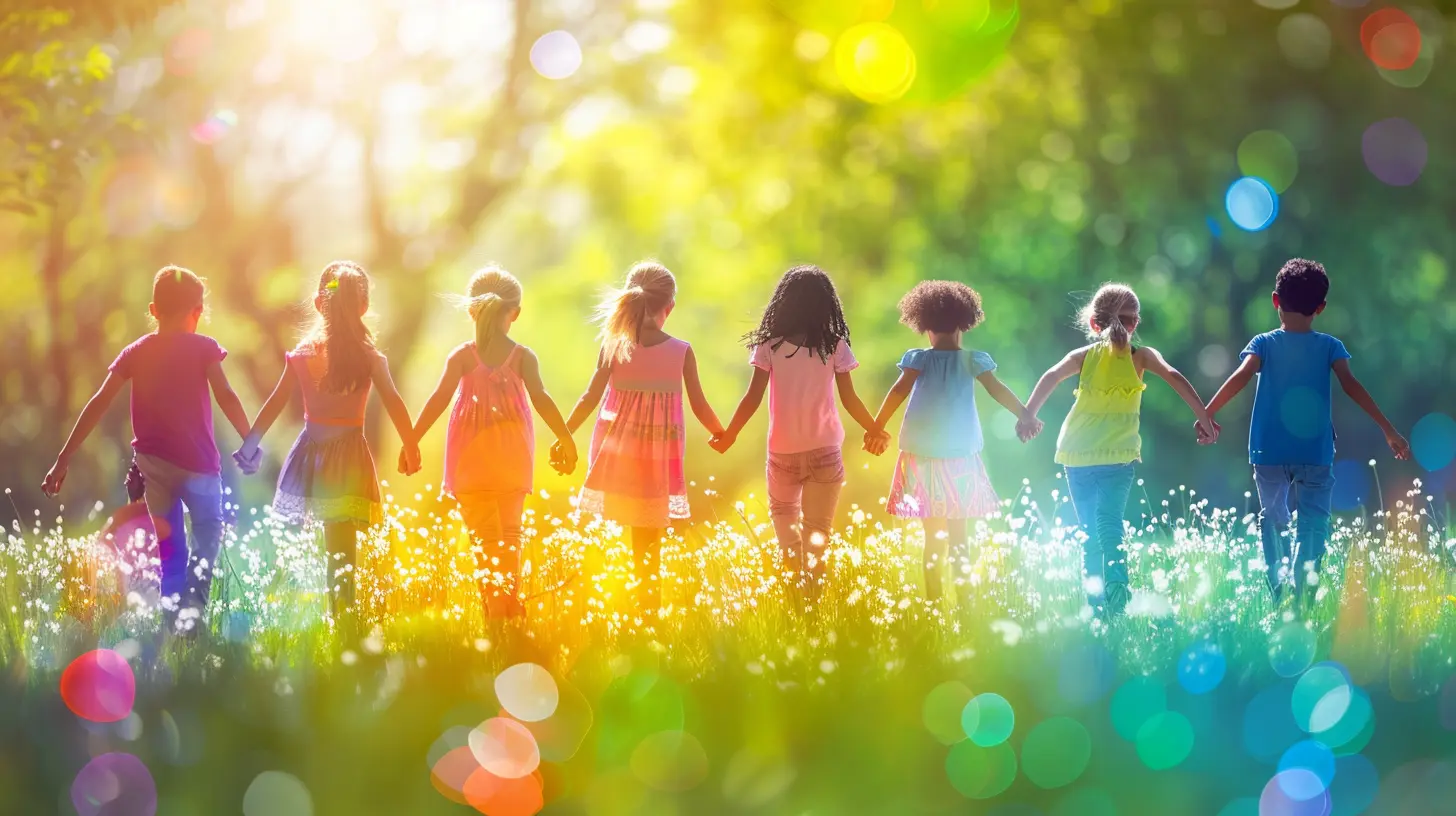How Bilingualism Promotes Empathy and Social Awareness
31 August 2025
Have you ever met someone who speaks more than one language and noticed how easily they connect with others? It’s not a coincidence. Bilingualism does more than just give you the ability to order tacos in flawless Spanish or navigate your way around Paris. It actually shapes the way you see the world—and how you understand the people in it.
In today’s globalized world, where connections happen across borders and cultures, being bilingual is more than a handy skill; it’s a powerful tool for fostering empathy and social awareness. But how exactly does speaking another language influence how we relate to others? Buckle up, because we’re diving into the psychology, science, and everyday magic of bilingualism.
What Is Bilingualism Anyway?
Let’s start with the basics. Bilingualism means being able to use two languages with at least some degree of fluency. Some people grow up with two languages from birth. Others pick up a second language later in life. Either way, the cognitive and social perks are pretty amazing.You don’t have to be perfectly fluent in both languages to be considered bilingual. Even being conversational counts. What matters most is the interaction between linguistic systems—and how that interaction rewires your brain in some fascinating ways.
The Link Between Language and Empathy
Understanding the World Through a Different Lens
When you speak another language, you’re not just memorizing vocabulary or grammar rules. You're immersing yourself in another culture, grasping its humor, its values, even its unspoken rules. Language is the lens through which a culture sees the world—and when you switch lenses, your own worldview expands.Let’s say you speak both English and Japanese. In Japanese, it's common to avoid directly saying “no" to preserve harmony. Understanding this isn’t just about knowing the words—it’s about grasping the emotional and social subtext. And that’s where empathy comes into play.
Walking in Someone Else’s Shoes (Literally and Linguistically)
Empathy is all about understanding others’ emotions and perspectives. And what better way to do that than by learning the language they think, dream, and cry in? When you learn a new language, you’re not just gaining words—you’re stepping into someone else’s life. You start to ask, “Why do they see things this way?” instead of, “Why don't they do things the way I do?”That curiosity is empathy in action.
Scientific Backing: The Brain of a Bilingual
Brain Flexibility and Perspective Taking
Research supports the idea that bilingual individuals are more skilled at perspective-taking. According to studies in cognitive neuroscience, bilingual brains are more adaptable. They’re constantly switching between language systems, which boosts executive function, a fancy way of saying "mental juggling.”This mental flexibility spills over into how bilinguals perceive social situations. They become better at interpreting tone, body language, and emotional cues—skills that are essential for empathy.
Gray Matter and Emotional Intelligence
Fun fact: Bilinguals often show increased gray matter in areas of the brain associated with empathy and self-regulation. These aren’t just mental muscles; they’re emotional ones too. Enhanced gray matter means better emotional control, deeper understanding of others’ feelings, and more nuanced interactions.
Cultural Competence: A Side Effect of Bilingualism
Getting Comfortable With “Different”
Let’s face it—people sometimes fear what they don’t understand. Bilingual individuals are regularly exposed to cultural norms, idioms, traditions, and viewpoints that differ from their own. Over time, this exposure builds cultural competence—basically, the ability to interact respectfully and effectively with people from different backgrounds.When you speak another language, you're often the bridge between two worlds. You understand the subtleties that others might miss. This makes you not just more empathetic, but also more socially aware and inclusive.
Reduced Stereotyping and Bias
Studies show that bilingual individuals tend to exhibit less racial and cultural bias. Why? Because they often find themselves in multicultural situations where they’re a guest in someone else’s world. This interaction fosters humility and reduces the knee-jerk reactions that come from ignorance.Think of it this way—when you've talked politics in French, shared a meal in Arabic, or danced at a traditional Indian wedding, it's way harder to hold onto stereotypes. Your lived experience counteracts them.
Real-Life Scenarios: Empathy in Action
Classroom Settings
Teachers who are bilingual often pick up on nuances that help them connect better with students from diverse backgrounds. They can identify when a student is struggling not just with academics, but with cultural adjustment too.Healthcare and Social Work
Bilingual healthcare workers and social workers often build trust faster with clients. They understand that communication isn't just about words—it's about emotional nuance, tone, and culturally appropriate responses.Everyday Encounters
Even outside of professional settings, bilingual people tend to handle conflict and miscommunication more gracefully. They're used to navigating misunderstandings and are more patient when faced with different viewpoints.The Emotional Vocabulary Bonus
Ever heard a word in another language that doesn’t translate well into English, yet expresses a feeling perfectly? That’s the emotional gift of bilingualism. Different languages offer unique emotional vocabularies that help bilinguals articulate feelings more precisely.For example, the Portuguese word “saudade” captures a deep emotional state of nostalgic longing. The German word “schadenfreude” expresses pleasure derived from another’s misfortune (hey, we’ve all been there!). Being familiar with such terms enriches emotional intelligence and nuanced thinking.
Raising Bilingual Children: Cultivating Empathy Early
Kids who grow up speaking multiple languages often show early signs of heightened emotional intelligence. Why? Because from a young age, they learn to navigate different social situations, respect cultural norms, and switch communication styles depending on who they’re talking to.Parents raising bilingual kids are essentially giving them an “empathy bootcamp”—and it’s one of the best tools they can carry into adulthood.
Bilingualism and Global Citizenship
Building Bridges, Not Walls
In a world often divided by language barriers, bilingual people act as natural connectors. They help foster understanding in workplaces, communities, and even international relations. They’re the ones who can smooth over a tense exchange because they understand both sides—not just linguistically, but emotionally.Compassion in a Multilingual World
As society becomes increasingly multicultural, the ability to communicate across languages becomes more than a skill—it becomes an act of compassion. Speaking someone’s language acknowledges their identity, their culture, and their perspective. That’s powerful.So, Should You Learn Another Language?
Absolutely. Whether you pick up Spanish, learn sign language, or brush up on Mandarin, the benefits go far beyond communication. You’ll find yourself becoming more open-minded, more patient, and—yes—more empathetic.And it’s never too late to start. Even learning just a few phrases can open your heart and mind in ways you never expected.
Final Thoughts
Bilingualism isn’t just about being able to translate a conversation—it’s about transforming how you relate to other humans. It nurtures empathy, sharpens your awareness of social dynamics, and makes you more attuned to the cultural currents that shape people’s lives.So the next time you hear someone switch between languages with ease, don’t just admire their skill—recognize the emotional intelligence and cross-cultural sensitivity behind it. Because being bilingual is not just about speaking differently; it’s about thinking, feeling, and understanding differently too.
all images in this post were generated using AI tools
Category:
Bilingual EducationAuthor:

Monica O`Neal
Discussion
rate this article
1 comments
Indie McCarty
This article compellingly highlights the connection between bilingualism and enhanced empathy. By navigating multiple languages and cultures, bilingual individuals develop a deeper understanding of diverse perspectives. This not only fosters social awareness but also cultivates kindness and compassion in our increasingly interconnected world. A must-read for educators!
September 7, 2025 at 3:25 AM

Monica O`Neal
Thank you for your thoughtful comment! I'm glad you found the article impactful in highlighting the vital link between bilingualism and empathy.


